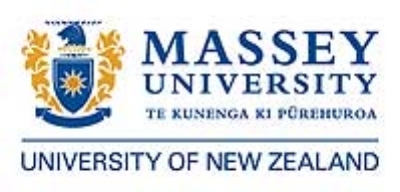Transport
Investigating knowledge transfer in the design of active travel infrastructure
Te Ara Mua Future Streets is a controlled intervention study in Māngere, South Auckland. It aims to slow traffic, change driver behaviour and make walking and cycling easier and safer for all residents. This collaborative project, led by Dr Hamish Mackie (Mackie Research) involves local community, transport agency professionals and researchers from universities and private consultancies. Transforming vehicle-focused street infrastructure to support a shift to active travel modes posed a complex interdisciplinary challenge.
The research commenced in 2013 and is ongoing with funding overtime from a range of agencies including the Health Research Council, Ministry of Business Innovation and Employment and the Healthier Lives and ageing Well National Science Challenges.
In 2023 a second follow up survey with residents is being conducted and repeated measures of driver behaviour.
Unlocking Transport Innovation: A Sociotechnical Perspective of the Logics of Transport Planning Decision-Making
Not all design innovations proposed for the Te Ara Mua Future Streets intervention were taken up. Based on a case study of a pedestrian crossing design, proposed and ultimately rejected, this research investigates the regulatory and decision-making logics, processes and practices that determine the street design solutions that become part of our built environment and transport infrastructure. A sociotechnical framework is deployed to draw attention to the network of complex and multi-scalar relationships that compose a multi-actor innovation project.
ACTIVATION (Activating Change Through InterVentions for Active Travel In Our Neighbourhoods)
Urban design that enables safe and easy walking, biking, and public transport (active travel) access to the destinations of daily life – work, whānau, friends, public spaces, services, and amenities – can support physical activity, social connections, and for older citizens, ageing in place. However, many neighbourhoods in Aotearoa/New Zealand lack supportive infrastructure and good services and social/cultural interventions are needed. The best mix of interventions to increase active travel and enhance health and wellbeing is at present unknown.
Identifying an effective ‘mix’ is the aim of ACTIVATION, funded by the Aging Well and Healthier Lives National Science Challenges. The research has two study locations, Māngere in South Auckland and central Christchurch. In Māngere this research is aligned with the cross-agency collaboration, Safe & Healthy Streets South Auckland and builds on Te Ara Mua-Future Streets (see above), a longitudinal controlled intervention study.
For further information please contact Professor Karen Witten: k.witten@massey.ac.nz
Māngere e-bike trials
Initiated through the ACTIVATION study (introduced under the Neighbourhood Design and Wellbeing tab) a series of e-bike trials have been conducted in Māngere. The first was a Give-it-a go trial, co designed and delivered with Triple Teez, a Māngere-based community cycling promotion organisation. The trial enabled residents to participate in skills training workshops and try out an e-bike. Based on the interested generated by this initial trial, funding was subsequently sought from and granted by Auckland Council’s Nga Tiriti Ngangahau – Climate Change Fund for second trial that gave residents personal access to a e-bike for three months. Participants were able to explore how an e-bike could be integrated into their regular travel patterns. Again, interest was so strong that in collaboration with Triple Teez, with funding from Waka Kotah’s Innovation Fund, we are investigating the type of incentive schemes that would enable residents in lower socio-economic communities to have permanent access to an e-bike and participate in a just transition to lower carbon future.



